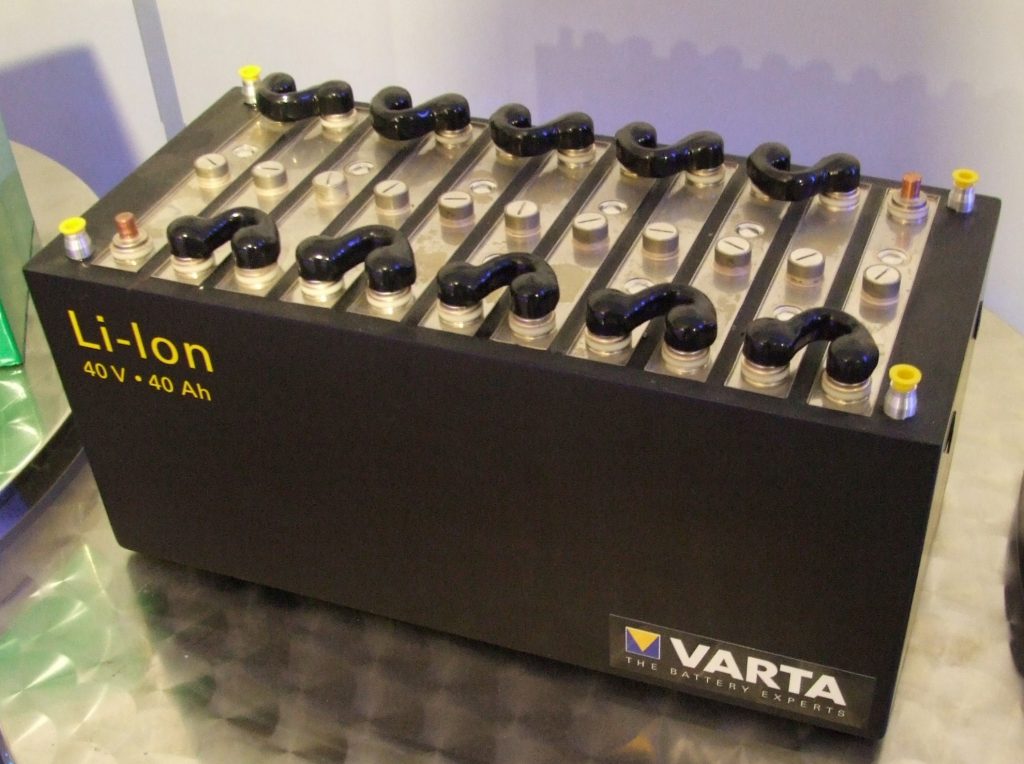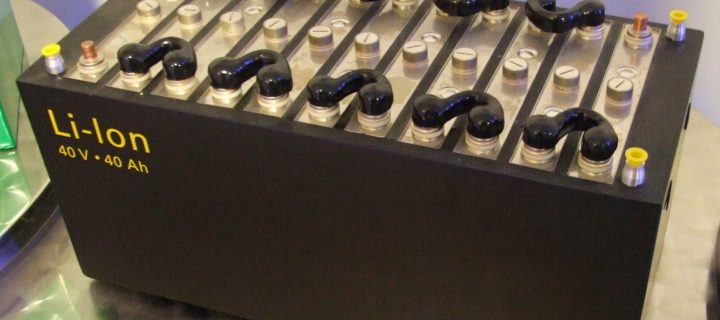Lithium-ion batteries are more popular than ever and feature in offices and businesses throughout the UK. However, they have been known to pose a fire risk, especially when it comes to waste management sites – in fact, the Environmental Services Association (ESA) has said that 48% of waste fires are caused by lithium-ion batteries every year.
With those shocking figures – and our continued reliance on lithium-ion powered devices – in mind, we have put together a guide to help you stay safe when it comes to the use of these items in your business.
Let’s begin by taking a look at where lithium-ion batteries are most commonly found.
What are lithium-ion batteries used for?
You may not have realised it, but lots of our modern devices use lithium-ion batteries, because they’re faster when it comes to charging and hold that charge for longer.

Commonly, lithium-ion batteries are found in rechargeable devices such as laptops, tablets, vapes and mobile phones. As well as the things we have with us at work every day, they’re also in electric toothbrushes, power tools and even the newly popular electric scooters.
An ever-present in most of our lives, let’s find out why they’re prone to catching fire.
Why do lithium-ion batteries catch fire?
Firstly, we should point out that most lithium-ion batteries get recalled if a fault is detected, and they undergo rigorous testing before being sold. But while the chances are slim, it’s worth knowing the risk so you can better understand the situation and work to prevent it.
There are three main causes of fire with lithium-ion batteries:
1. Damage
Let’s start with damage to batteries. The small, thin and portable nature of these batteries means they’re practical, but it also makes them easy to damage, which is one thing lithium batteries don’t like – any shunts or bumps could create a circuit shortage which can lead to a fire. Understandably, when they’re put in with regular waste and sent through sorting machinery, the multiple, heavy impacts are what trigger the fire, but you could just as easily drop your electronic device and cause damage to the battery while you’re working.
2. Heat
Heat for lithium-ion batteries is also bad. Whether it’s because the device is old, has been inadvertently covered or is surrounded by other devices giving off heat, high temperatures can cause the cells in the battery to ignite. It also doesn’t help if the devices are manufactured with cheap materials that don’t work to keep internal temperatures down.
3. Overcharging
The third common way these batteries catch fire is from overcharging – classed as a misuse – which damages the cells and causes them to heat up. As mentioned above, this can then lead to a fire.
In the rare event that a lithium-ion battery does catch fire, it’s useful to know how you can tackle it.
How do you put out a lithium-ion battery fire?
Our first piece of advice when faced with any type of fire, is to only tackle it if you’re absolutely sure it can be put out. If you have any doubts or are unsure how to tackle the fire properly, sound the alarm and evacuate immediately, leaving the fire fighting to the professionals.
If you have fire suppression systems or oxygen reduction systems in your building, these can be useful in putting out fires generally. However, when it comes to putting out a fire of this nature yourself, portable fire extinguishers are really the only other option available.
Which extinguisher can be used for lithium-ion battery fires?
As we mentioned previously, only attempt to extinguish a fire if you’re absolutely sure you can do it – this means catching it early while the fire is very small, as well as knowing which fire extinguisher type is right for a lithium-ion battery fire.
Specialist fire extinguishers for just this type of fire are available, called lith-ex fire extinguishers, and they use AVD (Aqueous Vermiculite Dispersion). These units produce a mist of special chemicals that eventually coat the battery cells, preventing more oxygen from reaching the source of the ignition.
If you don’t have this specialist extinguisher and need to use a portable fire extinguisher, you should only do so on individual device fires. You’ll first need to disconnect the battery from the mains if you can do so safely, before using a water-based extinguisher to put out any spreading flames. Because a water extinguisher may not provide adequate cooling or coating of the battery, you will only be able to prevent the spread of fire until the fire brigade can arrive.
You can get lithium extinguishers, as well as a range of other extinguisher types, from us directly at TVF (UK) Ltd.
How do you prevent lithium-ion battery fires?
Storage, Handling and Charging
Ultimately prevention – the storage, handling and charging of these batteries – is the most important thing. Individual cells (such as e-cig batteries, drill batteries, etc.) should be able to be contained using a portable extinguisher. If you have a number of cells all stored together, such as in a box or container, and one of the cells in the middle of the container catches fire, this type of situation would be hard to control as it is difficult to get to the source cell and provide enough cooling from the fire extinguisher to control the fire. You could get thermal runaway and at this point, where any number of extinguishers will probably not be enough to control the fire.
Protection
Protection is a key part of prevention, and there are numerous ways you can work on this. Firstly, we recommend not disposing of lithium-ion batteries in your general waste, not covering them or keeping them in heated environments and ensuring you do your utmost to avoid dropping them or dropping heavier items onto them. Accidents can always happen, but the more vigilant you are, the less likely they will be to occur.
Safety Policies
You can also implement a company policy to control the use of any personal electrical items that use lithium-ion batteries, ensuring staff provide any such equipment to be included in the company PAT regime and promoting the safe handling, storage and charging of any lithium-ion batteries (only use an approved charger for the battery type). Alternatively, you may wish to restrict their use completely.
Reputable Products
Finally, only purchase lithium-ion batteries, and devices containing them, from reputable sellers who are able to provide compliance to accepted European and UK safety standards (CE and UKCA marked). Plus, you should only use replacement or spare lithium-ion batteries that are approved by the original equipment manufacturer.
Detection is the next best step after protection. If you can’t protect against the fire, at least provide rapid detection so that the alarm can be raised, triggering automatic suppression systems and/or the local fire services. You’ll also ensure swift, safe evacuation from your building with proper fire detection systems in place.
At TVF (UK) Ltd, we provide a wide range of fire extinguishers – including lith-ex units – to tackle various fire types. We specialise in commercial fire safety, which means we can recommend the right extinguishers for your business, as well as fire alarms to suit your building so that the alarm can be raised quickly in the event of a fire.
Whether you operate in waste management or retail, look no further than our expert team in High Wycombe, Watford, Slough and the surrounding areas. Call today on Call 0175 3907 640 and we’ll be happy to assist you with any fire safety equipment and systems you need.
Or send our team a message with our contact form.













